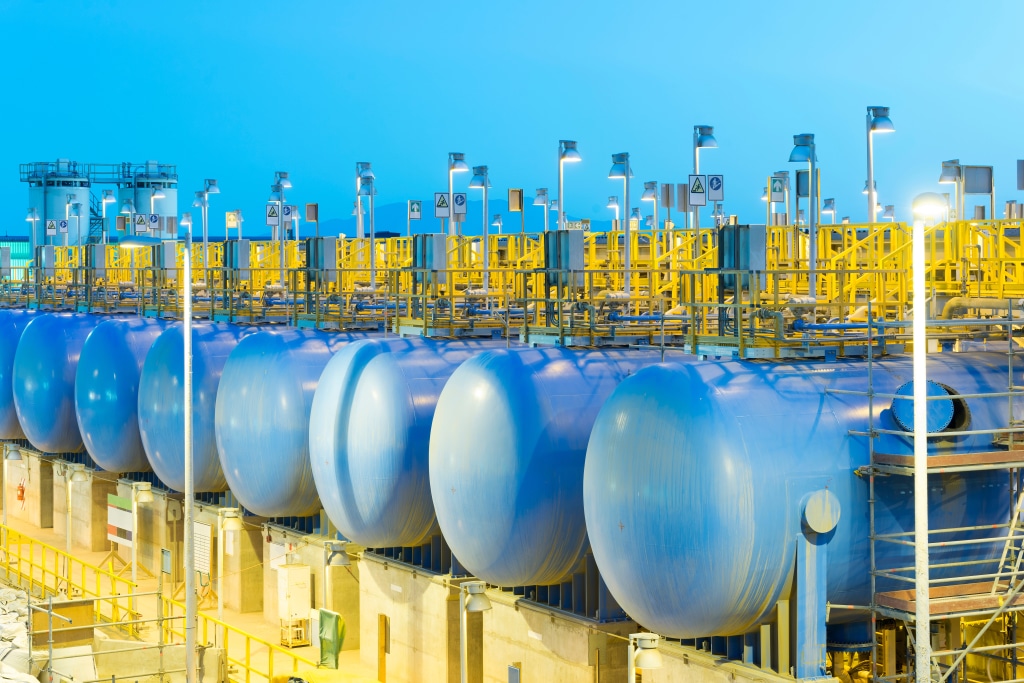Algeria’s drinking water production capacity is expected to increase thanks to new seawater desalination plants. On April 30, 2022, the Algerian Minister of Water Resources and Water Security, Karim Hasni announced plans to build five stations in several cities across the country.
The Algerian Energy Company (AEC), the subsidiary of the national company for research, production, transport, processing and marketing of hydrocarbons (Sonatrach) will implement the drinking water project. The city of Fouka 2 will host the first desalination plant.
The production of 1.5 million m3 of water per day
The other four plants will be located in the cities of Oran, Boumerdès, El Tarf and Bejaïa during the second half of 2022. Each facility will have a desalination capacity of 300,000 m3 per day, for a total capacity of 1.5 million m3 for all the stations.
With these facilities, the number of seawater desalination plants will increase to 19 in Algeria, “bringing the mobilization capacity of desalinated seawater to 42%, against only 17% currently in the country,” said the Algerian Minister of Water Resources and Water Security, Karim Hasni. While waiting for the launch of work in the various cities, the AEC is completing other projects in Algeria.
Read also- AFRICA: desalination now at the heart of water supply strategies
The Algerian company is currently carrying out efficiency and performance tests on the Bateau Cassé seawater desalination plant in Bordj El Kiffan, a suburb of the city of Algiers in northern Algeria. The operation of the new plant is expected to contribute to the reduction of drinking water shortages in the capital Algiers. AEC estimates that the plant will be able to desalinate 10,000 m3 of sea water per day.
The Bateau Cassé seawater desalination plant is part of a series of three plants planned in Algiers’ emergency plan to increase the city’s installed desalination capacity, in response to the drought that is progressively drying up available fresh water supplies.
Inès Magoum
